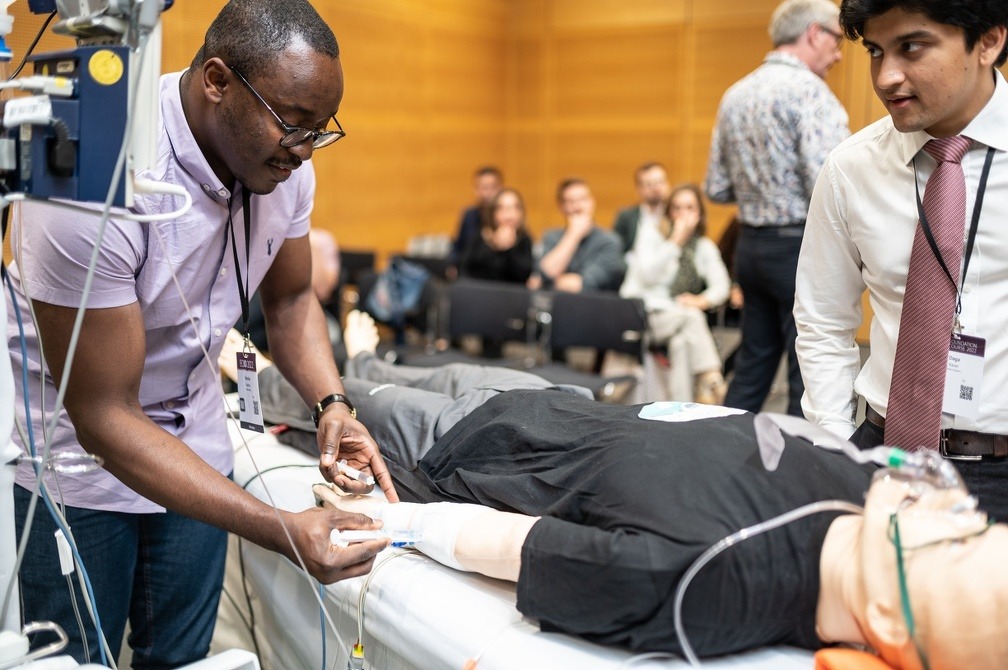This practical workshop will give participants the opportunity to perform procedural sedation (PSA) in a simulated environment and inform them of the most common respiratory problems that occur during procedural sedation, as well as which instruments are available to make these interventions safer.
Safe sedation application during IR procedures
The simulation set-up consists of a full-scale patient simulator with capnography, BIS Monitoring and TIVA/TCI pumps. Participants will perform these therapies under the supervision of AQAI’s experienced trainers.
Starting with a short introductory lecture, the simulation will give an overview about the current knowledge on safe PSA accompanied by the actual guidelines and recommendations. The workshop will demonstrate the practical parts and give the opportunity for hands-on-safe PSA under different aspects.
The basic sessions are intended for those who do not have much experience in PSA and want to acquire knowledge on this topic. The drugs used are mainly Midazolam and Fentanyl; other drugs used in PSA, such as Remimazolam and Remifentanil, will also be discussed.
In the advanced sessions, participants can additionally practice performing sedations in higher risk patients, e.g. those with hypertonia, severe cardiac diseases or pulmonary diseases like COPD. Participants in these sessions should first visit a basic session or should already have substantial experience in procedural sedation.
One workshop is dedicated to the use of Propofol for sedation. In some guidelines Propofol is the first drug of choice for procedural sedation, and the reasons for this will be discussed. The workshop will also delve into the legal requirements for the use of Propofol due to its pharmacologic properties, specifically discussing situations and countries that mandate the presence of an anaesthesiologist during the sedation. In addition, this workshop gives an introduction into TCI (Target Controlled Infusion) – to facilitate longer sedations for those procedures which are more challenging.
Learning objectives
- To apply procedural sedation using different approaches
- To identify complications and challenges during procedural sedation
- To assess the value of various monitoring technologies
- To recognise the additional value of capnography during sedation
- To select appropriate sedation techniques in high risk patients
- To identify limitations and situations where the help of an anaesthesiologist is mandatory
How to participate
Participation will be free of charge for registered CIRSE 2025 delegates, but places are limited and will be allocated on a first-come, first-served basis. Onsite registration starts 30 minutes before each individual session. As these sessions offer practical medical training, participation is for qualified medical professionals only.
Session schedule
Coordinators
M. Heinrichs (Mainz/DE), W. Heinrichs (Mainz/DE)
Sunday, September 14
SED 22.5: 10:00-11:30 basic
SED 24.5: 13:00-14:30 basic
SED 26.4: 16:15-17:45 advanced
Monday, September 15
SED 32.1: 10:00-11:30 advanced
SED 34.5: 13:00-14:30 basic
SED 36.5: 16:15-17:45 Propofol


